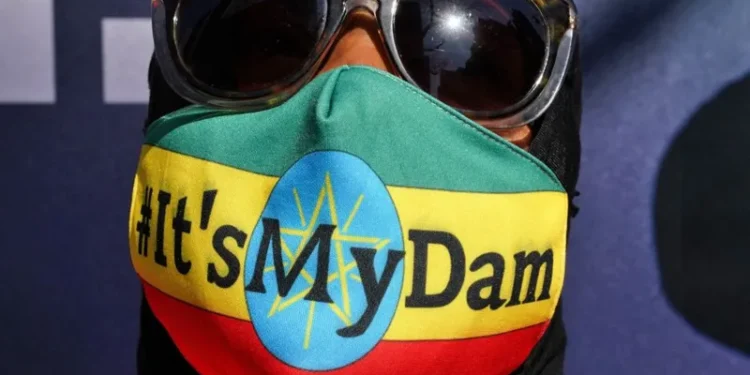After outfoxing Egypt on the diplomatic stage for more than a decade, Ethiopia is set to officially inaugurate one of the world’s biggest dams on a tributary of the River Nile, burying a colonial-era treaty that saw the UK guarantee the North African nation the lion’s share of its water.
The dam – built on the Blue Nile at a cost of about $5bn (£3.7bn), with a reservoir roughly the size of Greater London – has led to a surge in Ethiopian nationalism, uniting a nation often polarised along ethnic lines and mired in conflict.
“Ethiopians may disagree on how to eat injera [their staple food], but they agree on the dam,” Moses Chrispus Okello, an analyst with the South Africa-based Institute for Security Studies think-tank, told the BBC.
“They do not see it as a pile of concrete in the middle of a river, but as a monument of their achievement because Ethiopians, both at home and in the diaspora, funded the dam’s construction. There were waves and waves of appeals for contributions when construction started in 2011.
“The government also issued bonds that were bought by companies and workers. So, the sense that all Ethiopians own the dam has grown exponentially, and its inauguration is a source of great pride for the nation,” Mr Okello said.
Named the Grand Ethiopian Renaissance Dam (Gerd), it is Africa’s largest hydro-electric plant, raising hopes that not only will it meet the 135 million-strong population’s energy needs but it will also give the country “energy hegemony” and boost its foreign currency earnings, the analyst added.
Ethiopia was planning to increase the sale of electricity to neighbouring countries such as Kenya and Djibouti, with ambitions of building a transmission network to cross the Red Sea to sell to Middle Eastern states like Saudi Arabia, he said.
The dam has been built in a remote region of Ethiopia, near the border with Sudan
But for Egypt, the dam represents the opposite of Ethiopia’s hopes and ambitions.
It fears that dam could sharply reduce the flow of water to the country, causing water shortages.
“About 93% of Egypt is desert, with almost no people. All of us, 107 million people, live on the Nile,” a geologist at Egypt’s Cairo University, Prof Abbas Sharaky, told the BBC.
“Egyptian civilisation was built on the Nile. The Nile is our life,” he added.
The academic warns that “poverty of water” could worsen in Egypt because of the dam.
“It is storing 64 billion cubic metres, from water which usually flows to Egypt. This is a very big loss for us. Our average annual share is 55.5 billion cubic metres. We do not have any other source of water, but the Nile,” Prof Sharaky said.
He added that the Gerd stores “about double the amount of water in the Three Gorges Dam in China, which is the biggest dam in the world in generating electricity”.
A former negotiator for Ethiopia over the Gerd, Fekahmed Negash, told the BBC that despite enormous diplomatic pressure and even threats of war from Egypt, Ethiopia had stuck with its plan to build the dam because it was vital to its developmental needs.
This includes providing electricity to the estimated 60% of Ethiopians who do not have access to it, however he noted that this would not be easy as a transmission network would have to be built across the vast country with rocky and mountainous terrain.
















